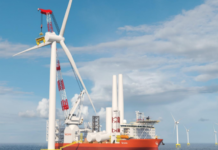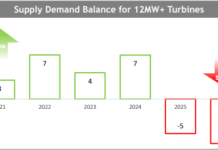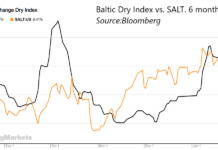Tom Konrad
 On March fifth, St. Louis, MO based carbon fiber manufacturer Zolek’s (NASD:ZOLT) shares jumped 14% to $10.52, having traded as high as $11.70 intraday when Quinpario Partners LLC and allied investors disclosed a 10.13% stake in the company.
On March fifth, St. Louis, MO based carbon fiber manufacturer Zolek’s (NASD:ZOLT) shares jumped 14% to $10.52, having traded as high as $11.70 intraday when Quinpario Partners LLC and allied investors disclosed a 10.13% stake in the company.
Jeffry Quinn wants to help Zoltek penetrate new markets and increase its global presence. |
Quinpario is an investment firm focused on the specialty chemicals and performance materials sectors, and also based in St. Louis. The firm was founded in 2012 by Jeffry N. Quinn and several senior executives from Solutia Inc, after Quinn and his team sold Solutia to Eastman Chemical Co. (NYSE:EMN.) Over the eight years leading up to the sale, they had transformed Solutia from a bankrupt local commodity chemical producer into one of the world’s leading global specialty chemicals firms.
A Troubling Response
Zoltek isn’t bankrupt, but after years of underperformance Quinn and his team are confident it could use their help. Zoltek’s President, CEO, and Chairman of the Board, Zsolt Rumy thinks otherwise.
Quinpario first approached Rumy privately, with two scenarios to allow them to take a stake in the firm and benefit current shareholders. According to a letter they sent to Rumy, they proposed either an acquisition of all Zoltek’s outstanding shares at a price “in the mid teens,” or a large investment in the company which would “fund a sizable special cash dividend” for existing shareholders. The only reply was one of dismissal from Zoltek’s legal council. Zoltek’s board had not formally considered the proposals, and was unwilling to engage with Quinpario to discuss the matter.
Quinnpario called this “a troubling response given the substantial value to shareholders offered by each of Quinpario’s proposed alternatives.” I would go further, and say that it’s arguably a breach of the board’s fiduciary duty to shareholders not to discuss a potential offer for the company which valued the stock at approximately twice its market price at the time (less than $7 a share in November 2012.) While the board will doubtlessly argue that no formal offer had been presented, shareholders would likely have been better served if the board had chosen to explore Quinpario’s ideas in an attempt to turn one into a formal offer.
In an interview, Quinn emphasized to me that his investment firm is “not a hedge fund” and that he and his team are focused on creating shareholder value. ”We’re not looking to create returns by being a pest.”
Call for a Special Meeting
Yet Rumy and Zoltek’s board seem determined to treat Quinn as if he were only a pest.
In its press release and SEC filing yesterday, Quinpario requested a special election to allow shareholders a vote on removing the current board and replacing them with Quinn and his slate of directors. Zoltek responded the same day, stating that the request was “deficient in several material respects” and that no special meeting would be called.
Rumy’s Rebuff
In a quote, Rumy stated,
Our Board members own a significant amount of Zoltek’s stock and, accordingly, our directors’ financial interests are directly aligned with those of our shareholders at large. We will continue to focus on building long-term shareholder value by leading the commercialization of carbon fibers. Of course, if Mr. Quinn`s group were to submit a bona fide proposal that adequately compensates our shareholders for the value of our technology, industry-leading capacity and future growth potential, our Board would be pleased to consider it.
Rumy’s statement about the boards’ financial incentives is misleading. According the the company’s most recent proxy statement, the vast majority of stock owned by the board is owned by Mr. Rumy himself. As Rumy is President, CEO, and Chairman of the company, his interests cannot be considered to be “directly aligned” with shareholders’. He also has interests in maintaining control of the company he built, and in keeping his job. Other board members collectively own only 1.55% of outstanding shares, and three directors own less than 38,000 shares each. Hence, the prospect of future compensation from retaining their positions is likely to be a significant influence on a majority of the board, quite possibly more significant than the lure of raising the value of their current holdings.
Rumy’s implication that Quinpario had not submitted a “bona fide proposal that adequately compensates our shareholders” is also misleading. While the offers made in November were not fleshed out, they seem to offer “adequate compensation” for shareholders. Had the board chosen to discus them at the time, they might have well become “bona fide offers” by now.
I have no doubt that Zoltek management will “continue to focus on building long-term shareholder value” under the current board. The problem is that, if history is any guide, they won’t actually produce much value. The share price has been flat since 2009, despite a large decline from a high of over $48 in late 2007. With such a poor track record, an offer of outside expertise should be welcomed.
What Comes Next
If the Company remains committed to the status quo, the window of opportunity will quickly close as others usurp Zoltek’s rightful role in the carbon fiber market.
Zoltek’s board has a staggered structure, meaning that Quinn and his allies will not be able to replace a majority of the current board without a special meeting of shareholders until 2015 at the earliest. They are unlikely to wait that long. As Quinn told me, his team sees a real opportunity to increase Zoltek’s penetration of new markets, and to increase its global presence. While he says that while they won’t “be deterred by short term obstacles, this opportunity will not be around forever. ”
As he wrote in his letter to Rumy, “If the Company remains committed to the status quo, then the window of opportunity will quickly close as others usurp Zoltek’s valuable market position and its rightful role in the carbon fiber market.” Given this sentiment, I don’t expect Quinn and his partners will tolerate continued rebuffs from the board for long.
In November, when the share price was below $7
, they were willing to offer a price per share “in the mid teens.” If the current board refuses to cooperate, I expect they will launch a hostile bid for the company, rather then submit to the interminable process of trying to replace a staggered board over multiple years.
Zoltek’s investor relations contact did not respond to multiple requests for an interview in time for publication.
Disclosure: Long ZOLT
This article was first published on the author’s Forbes.com blog, Green Stocks on March 7th.
DISCLAIMER: Past performance is not a guarantee or a reliable indicator of future results. This article contains the current opinions of the author and such opinions are subject to change without notice. This article has been distributed for informational purposes only. Forecasts, estimates, and certain information contained herein should not be considered as investment advice or a recommendation of any particular security, strategy or investment product. Information contained herein has been obtained from sources believed to be reliable, but not guaranteed.







